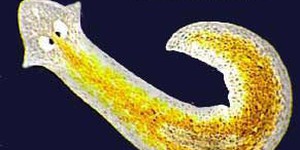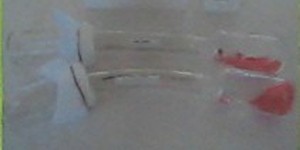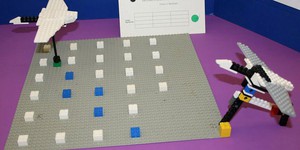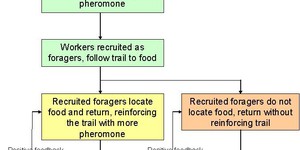Ninth Grade, Zoology Science Projects (15 results)
Animals have developed an amazing variety of body plans, behaviors, and strategies in order to succeed in the struggle for survival. Explore topics ranging from regeneration, camouflage, animal migration, how to attract hummingbirds, and more.
|
Select a resource
Sort by
|
Imagine the ocean water turning bright red or seeing ocean waves glowing a beautiful blue color. Sounds impossible—but it is not! Red tides and glowing waves are caused by microscopic organisms living in the ocean called dinoflagellates. Some dinoflagellates have the ability to produce light through a process called bioluminescence. When and how do these organisms glow? In this science project, you will investigate how changing the dinoflagellate's exposure to light and dark affects its…
Read more
Featured
Have you heard that garlic powder is supposed to inhibit the growth of bacteria? Which do you think would make a better disinfectant: a solution of garlic powder or a solution of bleach? This project shows you a straightforward way to compare the effectiveness of different disinfectants (or other antimicrobial agents), by measuring zones of inhibition on a culture plate.
Read more
In this project, water fleas (Daphnia magna), a semi-transparent freshwater crustacean, are used to study the effects of caffeine on heart rate. Don't worry about having to learn how to take a crustacean's pulse: you can actually see the heart beating under a microscope. Many variations of this experiment are possible.
Read more
New
Remembering to take medicine at the right time can be hard, especially if you need to take multiple medications at different times of day. It might not be a big deal if you forget to take your daily multivitamin, but for some people, forgetting to take medication at the right time can be dangerous. What if you had a device that could not only set off an alarm at the right time, but also automatically dispense the right pills for you? In this project, you will build an automatic medicine…
Read more
Can a simple organism that lives off of dead trees and that grows as a mass of protoplasm actually have intelligence? The goal of this science fair project is to test the ability of the slime mold Physarum polycephalum to solve the problem of finding the shortest path through a maze.
Read more
The human body has an impressive ability to heal itself after injury, but humans have nothing on planaria. Planaria have an amazing ability to regenerate. An entire animal can regenerate from just a fraction of the body! This project investigates the effect of magnetic field intensity on planarian regeneration.
Read more
Caffeine is a type of chemical called a stimulant. When you drink a caffeinated beverage, the caffeine enters into your blood stream dilating the capillaries and causing blood to flow more quickly. This gives your body a feeling of speeding up which can cause the jitters and wakefulness. How does caffeine affect the physiology of other animals? You can use over-the-counter caffeine supplements, like Vivarin, to test the effects of caffeine on animals. Try dissolving the caffeine in…
Read more
New
Artificial intelligence (AI) programs can now generate photorealistic pictures of people who do not exist in the real world. How can you tell if a picture is of a real person or a fake, AI-generated person? What features of the picture do people use to decide whether the face is real or AI-generated? In this project, you will explore these questions as you ask volunteers to look at both real and AI-generated pictures of human faces.
Read more
Has your house ever suffered an ant invasion? This project is an interesting way to investigate what substances are effective as ant repellents. The goal is to find substances that keep ants away, yet are safe for humans and the environment.
Read more
Have you ever wondered why geese fly in a V-formation? In this science fair project, you will build a wind tunnel to test how the formation of birds in flight actually affects their flight efficiency.
Read more
How do you figure out how to get places? Do you ask for directions, look at a map, or consult a compass? There are many ways for people to figure out how to travel from one place to another, but how do other animals do it? In this science fair project, you'll use real data, collected by biologists, to figure out how migratory birds manage to navigate more than 2,000 miles from their breeding grounds to their wintering grounds.
Read more
If you're looking for an experiment that will gross out just about everyone, you probably can't do much better than this! This project investigates an important question in the field of forensic entomology. Just make sure to get permission at home before you start.
Read more
Have you ever stopped to watch a trail of ants moving back and forth between a food source and their nest? Have you ever wondered how they establish their trail? You've probably read that ants use chemical signals to communicate with one another. This is a relatively simple experiment that you can do to determine whether ants use attractant signals (positive cues) or repellant signals (negative cues) or both.
Read more
|
Explore Our Science Videos
Potato Battery Science Project
Make an LED Night-Light
How to Make Great Rock Candy – STEM activity
















